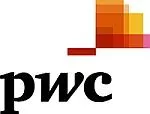Though the current recession has impacted negatively on Nigeria's automotive sector leading to a very slow growth scenario, the introduction of a viable vehicle financing scheme could instantly boost sales and ultimately local production. This is according to a new Industry brief on the sector released by leading professional services firm, PwC Nigeria.
The Industry brief is a one-year-after follow up to the firm's 2015 report on the sector in which it developed scenarios to capture the potential effects of the Nigeria Automotive Industry Development Plan (NAIDP) and in which it identified Nigeria as a future automotive hub driven by its large economy, population and government's intent to revive the industry.
In the recently released Industry brief titled Africa's Next Automotive Hub; Reality Check, PwC noted that Nigeria's automotive industry prospects remain centered around proper and timely implementation of the NAIDP and the introduction of a viable vehicle financing scheme.
Dr. Andrew S. Nevin, Advisory Partner and Chief Economist, PwC Nigeria says:
"Between 2014 and 2016, we have seen prices doubling resulting in over 60% decrease in vehicle sales. This can be attributed to the new tariff regime coupled with the depreciation of the Naira. The auto industry like most other sectors relies heavily on imports for direct sales and assembly and even though cars and related components are not on the CBN's forex 41 ban list, the difficulty of obtaining foreign exchange has led to increased prices and reduced consumer demand. In addition, we see Corporates who are usually the largest buyers reducing or postponing purchases while individuals on the other hand have seen a sharp drop in their disposable incomes and are thus reducing their demand for cars. All of these have led to very slow growth in the sector."
The Industry brief observed that the introduction of the NAIDP has seen to increased activity in local vehicle assembly with the National Automotive Design and Development Council (NADDC) granting thirty five companies' licenses to assemble/produce vehicles. Following this, several OEM representatives have begun plans to set up assembly operations to take advantage of the policy. Despite the increased number of local vehicle assemblers however, production has dropped by half due to the current economic climate. Assemblers are forced to source foreign exchange from the parallel market to pay for Semi-knocked down (SKD) kits. Limited players in the auxiliary industry keep local component content in production low and restricted to consumables. The reduced vehicle demand has seen assemblers operating below capacity (10% -20%).
Technology, the Industry brief notes, may be the game changer helping to leapfrog the industry into a more favourable scenario. This is in line with the global trend in the auto industry which is currently experiencing change spurred by disruptive technology.
Dr. Nevin comments:
"Trends like driverless cars, electric powered cars and ride sharing are revolutionising the auto industry globally. In Nigeria, ride sharing apps such as Uber, EasyTaxi, GoMyWay and Jekalo have become quite popular. Already Uber has made over a million trips in Nigeria in the last two years. This trend could potentially fast -track Nigeria's path to becoming an automotive hub potentially boosting sales of new and used vehicles as individuals take advantage of partnering with these companies to gain extra income."
The Industry brief proffered some next steps for the sector, reiterating key areas that have to be addressed for Nigeria to fully accomplish its potential of being Africa's next automotive hub. Some of these key actions are centered on continued policy support, better border control, emergence of auxiliary industries and building human capital for the sector.
The content of this article is intended to provide a general guide to the subject matter. Specialist advice should be sought about your specific circumstances.

